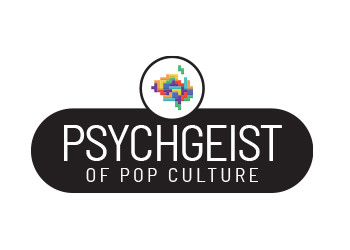
In 2008, the movie Iron Man kickstarted the Marvel Cinematic Universe (or MCU), a shared universe of movies and TV series based on superheroes from the Marvel comics. By sharing plot themes, characters, actors, and settings between different installments, the MCU presents both individual storylines as well as an overarching and interwoven narrative that has grown popular among fans and critics alike, becoming one of the biggest entertainment franchises in history. Given the MCU’s large emphasis on character storytelling and the fact that its teleological structure allows the franchise to explore the aftermath of narrative events in different subsequent projects, it has also represented many topics related to human psychology.
The MCU has expanded tremendously—and is still expanding—since its inception, leading to over 60 different (feature and short) films, TV series, and specials in 2024. After titular superheroes such as Iron Man, Hulk, Thor, and Captain America received their individual origin films, they assembled in the crossover movie The Avengers (2012). From there on out, the overall storyline has focused on the Infinity Stones—six elemental crystals controlling aspects such as time, space, or mind—and the alien warlord Thanos’ search for them in order to wipe out half of the universe’s population and bring ‘balance’ to it. This ‘Infinity Saga’ culminated in Avengers: Endgame (2019), after which most original heroes passed the torch to new characters. Currently, the MCU is in the middle of its second major saga, the ‘Multiverse Saga,’ which explores the existence of parallel universes, different versions or variants of the main superheroes, and how they will ultimately collide.
The Psychgeist of Pop Culture: The Marvel Cinematic Universe aims to explore the underlying psychological themes and processes represented in the Marvel Cinematic Universe, focusing on, amongst others, its stories, titular superheroes, villains, and supporting characters. Chapters can focus on different analysis levels (text or content, production, reception, or a combination) but should be based on clear theoretical foundations and scholarly analysis. We invite submissions from different psychology and social science research fields written by scholars and non-academic fans of the MCU.
Possible themes or chapters might include, but are not limited to, the following:
- “Genius, billionaire, playboy, philanthropist... real hero”: Iron Man’s heroic journey from self to selflessness
- “Not a perfect soldier, but a good man”: Morality, symbolism, and Captain America
- “I can’t go to Germany, I have homework”: Adolescence, mentorship and Spider-Man
- “What is grief, if not love persevering?”: Love and loss of Wanda Maximoff
- “Burdened with glorious purpose!”: Loki’s antihero identity across the multiverse
- “Dread it. Run from it. Destiny still arrives”: Thanos and villain psychology
- “Avengers, assemble”: Collaboration, team-ups and connection in the MCU
- “You’re kind of my favorite Avenger”: Fandom and superheroes as celebrities or role models (e.g., Kate Bishop, Ms. Marvel, Phil Coulson)
- “A child who scoffs at tradition”: Culture, tradition, and ethnic representation in the MCU (e.g., Black Panther, Luke Cage, Shang-Chi, Namor, Ms. Marvel, Echo)
- “She’s not alone”: Women in the MCU (e.g., Captain Marvel, Black Widow, She-Hulk, Jessica Jones)
- “I didn't ask to be torn apart and put back together over and over”: Anthropomorphism, technology, and human vs. non-human (e.g., Rocket Raccoon, Nebula, Vision, Ultron)
- “It felt like he had the keys to the car and I was locked in the trunk”: Mental health, internal struggles, and acceptance (e.g., Hulk, Winter Soldier, Moon Knight)
Some topics in this list recommend several characters that can be focused on within a given theme, although authors are free to focus on other characters instead of these examples. Chapters can focus more in-depth on a single character or include a broader comparison between several characters. In addition, we highly encourage original contributions or themes not listed above.
If you are interested in contributing to this edited volume, please send an abstract (no more than 400 words, excl. references) and your short resume or CV to Rowan Daneels, PhD AND Alexander Vandewalle, MSc no later than March 17, 2024.
- 1102 views
